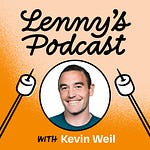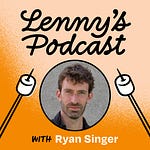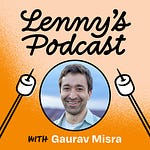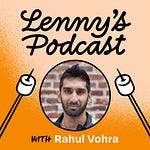Brought to you by:
• WorkOS—The modern API for auth and user identity
• Orb—The flexible billing engine for modern pricing
• Dovetail—Bring your customer into every decision
—
Kunal Shah is one of the most well-known and admired product leaders in India. He is the CEO and founder of CRED, an Indian-based fintech startup valued at over $6 billion. Prior to CRED, he founded three other startups, including Freecharge, which he sold for over $400 million to Snapdeal. He has also been an advisor to India’s most influential organizations. In our conversation, we discuss:
The prevalence of successful Indian immigrants in top CEO roles across the tech industry
Why companies in India can grow DAUs but not ARPU—and what that means for building products for India
What most sets India’s market apart
Challenges and opportunities in the Indian market
The Delta 4 framework for building new products
Lessons from building CRED so far
The power of curiosity and second-order thinking
Lessons from failure
Some takeaways:
Indian immigrants excel in American tech companies for multiple reasons. Kunal credits their success to a robust work ethic shaped by the need to prove themselves, a cultural emphasis on math and logic, and inspiration from Rama in Hindu mythology—a character known for obeying existing principles. Indian tech CEOs often emulate Rama’s values by prioritizing principles from the founders of their companies over personal interests. Notably, Satya Nadella embodies this ethos, carrying forward Bill Gates’s vision in his modern leadership at Microsoft.
The Delta 4 framework says that for a consumer product to have a chance at gaining traction, it must be at least four points superior to current solutions. The score is assessed by users ranking your product against alternatives on a scale of 1 to 10. If the difference (delta) is ≥4 compared with existing solutions, it’s indicative of a highly engaging and “sticky” product.
Founders can draw insights from Hindu mythology’s universal cycle: Brahma (creation), Vishnu (maintenance), and Mahesh (destruction). Like Brahma, they innovate and take risks to create; like Vishnu, they adapt to sustain their creations; and like Mahesh, they discard outdated practices to transform and grow. Embracing this cycle helps founders understand how to operate, given the stage they are at.
In India it’s easy to get high DAUs (daily active users) but hard to get ARPU (average revenue per user). With India’s low-income demographic, convincing users to part with their hard-earned cash is difficult. To account for India’s cultural differences, founders should pursue freemium models, tiered subscriptions, in-app purchases, or ad monetization to build trust and convince Indians of their product’s value proposition.
In India, there’s still a prevailing societal mindset that tends to favor stability over risk-taking. Failed founders may face challenges in societal acceptance, including difficulties in marriage prospects. This cultural dynamic shapes individuals’ willingness to pursue entrepreneurial endeavors.
In regions like India where hourly wages are uncommon and people are more accustomed to fixed salaries, the perception of time and its worth differs significantly. Consequently, businesses relying on time-based transactions may encounter hurdles in monetization.
Asking great questions involves understanding how people make choices and thinking about second-order effects. By delving into how individuals actually arrive at their conclusions, you can gain valuable insights.
Listen now on Apple, Spotify, Overcast, and YouTube.
Where to find Kunal Shah:
• X: https://twitter.com/kunalb11
• LinkedIn: https://www.linkedin.com/in/kunalshah1/
• Podcast: https://www.youtube.com/@CRED_club
Where to find Lenny:
• Newsletter: https://www.lennysnewsletter.com
• X: https://twitter.com/lennysan
• LinkedIn: https://www.linkedin.com/in/lennyrachitsky/
In this episode, we cover:
(00:00) Kunal’s background
(04:22) The Delta 4 framework
(11:00) The success of Indian CEOs in the U.S.
(19:55) Challenges and opportunities in India
(23:04) DAUs vs. ARPU in Indian markets
(25:50) The perception of time in India
(27:55) The curse of focus in Asian markets
(30:33) Challenges and opportunities in India (continued)
(33:23) Lessons learned from building CRED
(36:40) Profit pools can provide valuable insights into the values of a country
(37:55) Founders’ role in company growth
(39:55) Profitability and Indian business culture
(43:24) Advice for staying positive amid criticism
(44:41) The promising market in India
(47:35) The power of curiosity
(52:59) Who Kunal looks up to
(55:31) Kunal’s favorite sources of content
(58:42) Asking great questions
(01:02:54) Contrarian corner: Wealth is nothing but storage of energy
(01:05:26) Failure corner
(01:08:57) Closing thoughts: Share your learnings
(01:09:38) Lightning round
Referenced:
• The Delta 4 Framework That Will Help You Unlock a Pot of Gold: https://medium.com/illumination/the-delta-4-framework-that-will-help-you-unlock-a-pot-of-gold-1dce7bdfc813
• Sequoia: https://www.sequoiacap.com/
• Microsoft: https://www.microsoft.com
• Alphabet: https://abc.xyz/
• Adobe: https://www.adobe.com/
• IBM: https://www.ibm.com/
• Palo Alto Networks: https://www.paloaltonetworks.com/
• Starbucks: https://www.starbucks.com/
• Devdutt Pattanaik’s website: https://devdutt.com/
• Hindu deities: https://en.wikipedia.org/wiki/List_of_Hindu_deities
• Good to Great: Why Some Companies Make the Leap and Others Don’t: https://www.amazon.com/Good-Great-Some-Companies-Others/dp/0066620996
• Netflix’s 6.5M India subscribers dwarfed by Prime Video and Disney, Bernstein says: https://techcrunch.com/2023/10/05/netflix-india-subscribers/
• Tata: https://www.tata.com/
• The Story Behind the OG Chyawanprash: https://medium.com/dilettantesden/the-story-behind-the-og-chyawanprash-4588e5374bb8
• Satya Nadella on LinkedIn: https://www.linkedin.com/in/satyanadella/
• Cred: https://careers.cred.club/
• Brian Chesky’s new playbook: https://www.lennyspodcast.com/brian-cheskys-new-playbook/
• Apple Vision Pro: https://www.apple.com/apple-vision-pro/
• Noble gas: https://en.wikipedia.org/wiki/Noble_gas
• Cred Curious podcast: https://www.youtube.com/playlist?list=PLTzr9kdwf7PtSoyv2z7bzoNUNZKRdUN-E
• 10 animals with prehistoric roots: https://www.bbcearth.com/news/10-animals-with-pre-historic-roots
• David Blaine’s website: https://davidblaine.com/
• A Lesson from Danny Meyer About Dots and Rocks: https://ny.eater.com/2012/9/14/6545565/a-lesson-from-danny-meyer-about-dots-and-rocks
• Anurag Verma on X: https://twitter.com/vanurag
• Diamond demand is falling so fast—courtesy of lab-grown stones—De Beers is cutting some prices by more than 40%: https://fortune.com/2023/09/03/diamond-demand-falling-lab-grown-stones-de-beers-cutting-cutting-prices/
• Second-Order Thinking and Why It Matters in Business: https://fourweekmba.com/second-order-thinking/
• The Power of Strategy: How Strategy Games Enhance Cognitive Skills: https://fordjames.medium.com/the-power-of-strategy-how-strategy-games-enhance-cognitive-skills-2937c4c1ac6f#:~:text=The%20researchers%20concluded%20that%20strategy,games%20and%20improved%20spatial%20reasoning.
• Oppenheimer: https://www.oppenheimermovie.com/
• Mark Zuckerberg Says He Tried Out Apple’s Vision Pro and—Surprise!—Claims Meta’s Quest 3 Is ‘the Better Product, Period’: https://variety.com/2024/digital/news/zuckerberg-apple-vision-pro-meta-quest-better-product-1235910851/
• Monday Motivation: https://twitter.com/kunalb11/status/1492743073922572289
Production and marketing by https://penname.co/. For inquiries about sponsoring the podcast, email podcast@lennyrachitsky.com.
Lenny may be an investor in the companies discussed.















Share this post